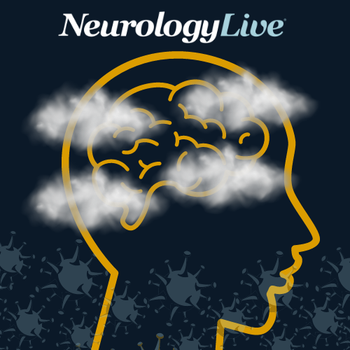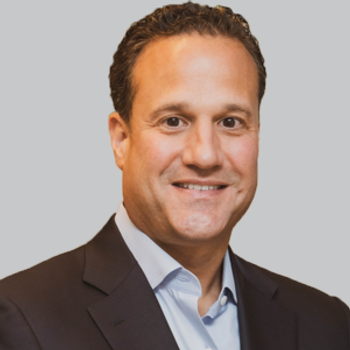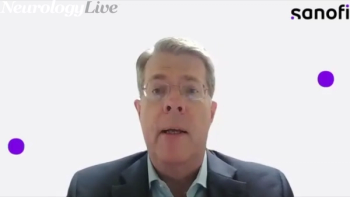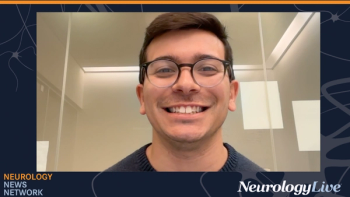
A recent study showed that an increase in anti-hepatitis E virus seroprevalence in patients with chronic inflammatory demyelinating polyneuropathy was not a consequence of intravenous immunoglobulin therapy.

A recent study showed that an increase in anti-hepatitis E virus seroprevalence in patients with chronic inflammatory demyelinating polyneuropathy was not a consequence of intravenous immunoglobulin therapy.

VO659 was considered safe and well tolerated, with treated patients showing no sustained increase in neurofilament light protein through day 85 of treatment.

The consultant neurologist at Imperial College Healthcare Trust highlighted the importance of acknowledging smoldering multiple sclerosis, urging a shift in therapeutic focus beyond relapses and advocating for a new approach to disease management. [WATCH TIME: 5 minutes]

New findings from the CAMPSIITE trial highlight that RGX-121 gene therapy significantly reduces cerebrospinal fluid biomarkers, suggesting its potential as a first treatment for Hunter syndrome.

Treatment with STK-001, an antisense oligonucleotide, resulted in significant reductions in seizure activity at the 3- and 6-month timepoints after last dose.

BB-031 aims to expand the population eligible for acute revascularization therapy by reopening blocked arteries beyond the traditional therapeutic window, potentially increasing eligible AIS patients by nearly 50%.

The disease area stronghold leader in neurodegeneration at Johnson & Johnson provided insight on the importance of the Global Neurodegeneration Proteomics Consortium, illustrated in several presentations at the recently concluded AAIC 2024. [WATCH TIME: 7 minutes]

Results revealed that adjunctive treatment with intravenous argatroban or eptifibatide was associated with increased mortality in acute ischemic stroke treated with intravenous thrombolysis.

Treatment with Lu AG09222 as a migraine preventive was safe, with common adverse events that included COVID-19, nasopharyngitis, and fatigue.

Michael McDermott, MD, chief medical executive of Baptist Health Miami Neuroscience Institute, provided commentary on the early stages of a recently designed protective surfing helmet.

STK-001 (zorevunersen), an investigational therapy, shows promising results in reducing seizures and improving cognition in patients with Dravet syndrome, offering potential beyond current anti-seizure medications.

Across 4 trials with over 4800 patients, rimegepant demonstrated superior pain and symptom relief 2 hours post-dose, with fewer requiring rescue medication.

Recent data and conversations with experts highlighted the increasing concern of Long COVID’s impact on the brain in patients who have been previously infected with the virus.

The postdoctoral researcher at Amsterdam University Medical Center talked about a tool that helps assess the likelihood of transitioning to secondary progressive multiple sclerosis, allowing clinicians to make informed treatment decisions in a timely manner.

The consultant neurologist at Imperial College Healthcare Trust talked about how smoldering disease in multiple sclerosis encompasses disease progression independent of relapsing activity, thus broadening the scope beyond traditional measures. [WATCH TIME: 4 minutes]

Radiprodil, a novel NMDA receptor modulator, demonstrated significant potential in reducing seizure frequency, with 71% of patients showing at least a 50% reduction in motor seizures.

Catch up on any of the neurology news headlines you may have missed over the course of August 2024, compiled all into one place by the NeurologyLive® team.

The global head of neurology development at Sanofi discussed the safety profile of tolebrutinib, an investigational BTK inhibitor, and how treatments like it may help transform the care for patients with multiple sclerosis. [WATCH TIME: 5 minutes]

Lennox-Gastaut syndrome took an average of 12.3 months to be diagnosed after the first seizure, often leading to delays in treatment.

The agency’s letter of support for using the α-synuclein seed amplification assay biomarker was supported by data observed in the Parkinson's Progression Markers Initiative cohort study.

Representatives from the SCN8A Alliance provided clinical insight on a recently published paper that captured information on the estimated frequency, severity, and prognosis of comorbidities in SCN8A-related disorder phenotypes. [WATCH TIME: 5 minutes]

Recent findings from a phase 3 study revealed improvements in independent ambulation and overall functional outcomes in patients with large hemispheric infarction treated with intravenous glibenclamide.

VES001 demonstrated safety, strong target engagement, and normalization of progranulin levels in healthy volunteers, advancing toward a phase 2a trial.

A group of clinician researchers at NYU Langone provided insight on a study presented at AAIC 2024 looking at the correlations between quantitative gait measures and Alzheimer disease biomarkers. [WATCH TIME: 4 minutes]

Here's some of what is coming soon to NeurologyLive® this week.

CT-132, a digital therapy, targets brain hypersensitivity and provided non-pharmacological treatment, showing promise for integration into migraine management.

Ashwini Sharan, MD, chief medical officer of Medtronic Neuromodulation, provided commentary on the FDA’s decision to approve asleep deep brain stimulation for the treatment of Parkinson disease and essential tremor.

Test your neurology knowledge with NeurologyLive®'s weekly quiz series, featuring questions on a variety of clinical and historical neurology topics. This week's topic is on essential tremor.

The chief executive officer and founder at CureDuchenne discussed efforts to bring specialized physical therapy and infrastructure support to underserved regions to improve care for patients impacted by Duchenne worldwide. [WATCH TIME: 5 minutes]

Neurology News Network. for the week ending September 7, 2024. [WATCH TIME: 4 minutes]